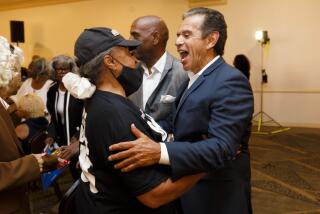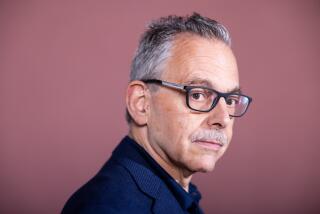Barco ‘Believes in Workable Structures, Measurable Facts’
- Share via
BOGOTA, Colombia — Virgilio Barco Vargas, 65, is an engineer and economic planner who had never run for major public office before he set out to win the presidency of Colombia. He won the May election by a landslide.
Barco had been minister of public works, minister of agriculture and mayor of Bogota--all appointive jobs--as well as ambassador to the United States. These posts had given him visibility, but his ability to convince the voters of his capacity to lead was in question.
Wearing a red polo shirt, the color of his Liberal Party, Barco stumped the country in a yearlong campaign that exhausted many of his younger assistants. Despite a tendency to stammer, he became a convincing public speaker.
The message he put over was that Colombians deserve a better life because of their country’s abundant natural resources--such as vast amounts of coal and oil--and because they are a hard-working people. He said that government should carry out social reforms and let private enterprise create wealth.
He promised to bring about changes that would make possible a “new Colombia” that would provide for full employment, reduce income inequalities between the rural poor and the more prosperous city dwellers, combat widespread crime, pacify the armed guerrillas who challenge Colombia’s democracy and drive out drug traffickers.
It is a tall order. Barco’s predecessor, Belisario Betancur, made similar promises, and they have not been fulfilled.
Barco is a reserved, almost introverted man. He comes from two Colombian families that could be considered among the aristocracy of North Santander, his home state. As a political leader with both social status and goals for social reform, Barco has been likened to Franklin D. Roosevelt, a man he says he admires.
With his shock of white hair and spectacles, Barco looks like a university professor, but friends say that he has the energy of a construction boss.
Samuel Yohai, a banker who has known Barco for 25 years, describes him as “a pragmatist who believes in workable structures, like bridges that don’t fall down, and measurable facts, not windy speeches.”
“He is a perfectionist,” a man who worked on his campaign said. “It can drive you crazy, but he will not let up until he gets things the way he wants them.”
Barco grew up in Cucuta, in the area where foreign companies first struck oil in Colombia. Barco’s grandfather, an oil developer, laid the basis of the family fortune. Barco’s mother was from a traditional, Liberal Party family, and this accounts for his interest in politics.
After studying engineering here, Barco went on to the Massachusetts Institute of Technology and was graduated as a civil engineer in 1943. Later, he studied political science and economics at Harvard University.
Barco acquired a knowledge of international economics, development financing and Third World economic problems during five years as a director of the World Bank in Washington.
Barco met his wife, Caroline Isakson, daughter of an American oil executive, in Cucuta, where both were in school. She studied at Stanford University, then returned to Colombia, married Barco and became a Colombian citizen. They have three daughters and a son.
More to Read
Sign up for Essential California
The most important California stories and recommendations in your inbox every morning.
You may occasionally receive promotional content from the Los Angeles Times.










